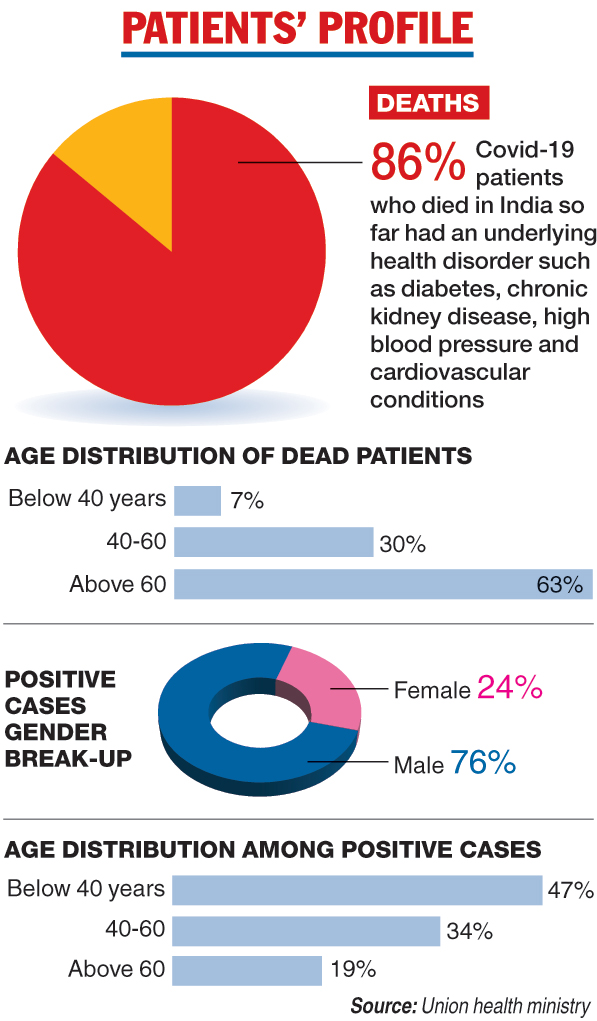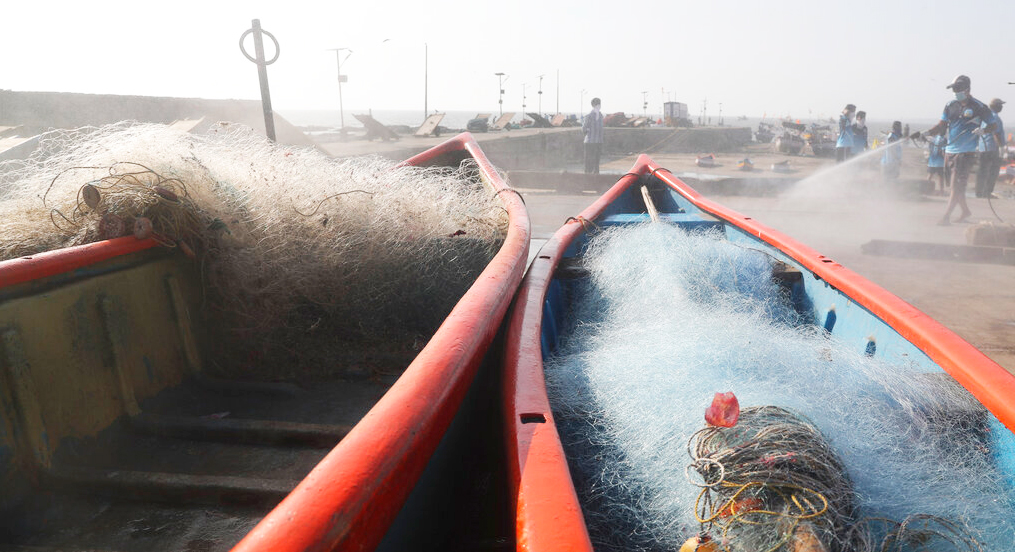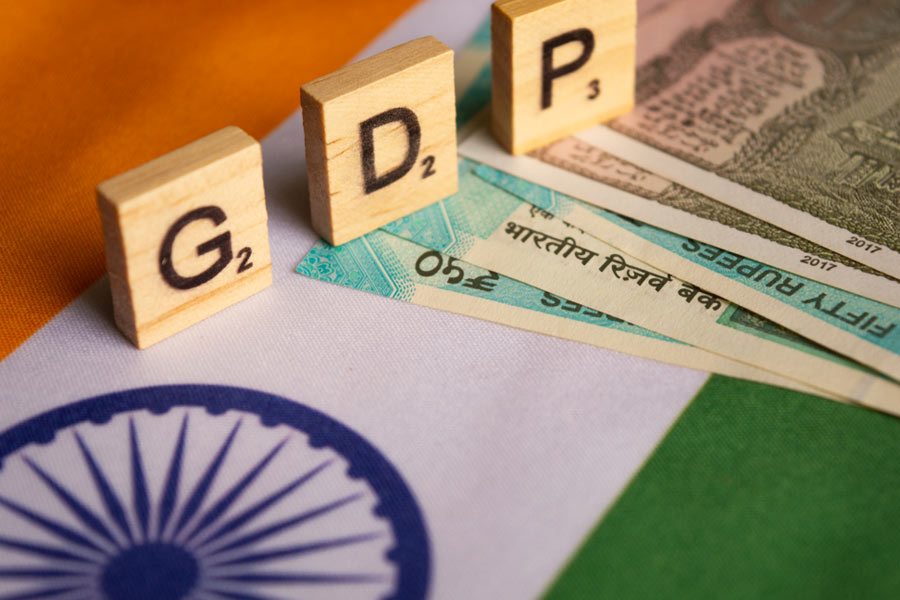Eight in 10 Covid-19 patients who have died in India had underlying health disorders such as diabetes, hypertension or cardiovascular conditions, the Union health ministry said on Monday, as the country’s Covid-19 count spiked for the first time by over 700 overnight.
The ministry said 86 per cent of the 111 patients who had died until Monday had “co-morbidities”, or underlying health disorders such as diabetes, high blood pressure, chronic kidney disease or a cardiovascular condition.
Around 63 per cent of the deaths have taken place in patients aged 60 years or older and seven per cent in patients below 40 years, a health ministry official said.
Medical experts said the findings were in line with observations in other countries that the elderly and people with comorbidities were more likely to develop severe disease.A health ministry official said the age-distribution, although on expected lines, has lessons for the public.
“While 37 per cent of deaths are in people below 60 years, 86 per cent are among people with comorbidities,” said Lav Agarwal, a joint secretary in the health ministry. “Young people with comorbidities are also at risk.”
“To that extent, young people also need to be careful that they maintain sufficient social distance so as not to pass on the infection to anyone in the family, particularly the elderly. We request all to adhere to the social-distancing and lockdown measures.”
Health authorities had until 6pm on Monday documented 704 new Covid-19 cases, raising the country’s total number to 4,281. More than 300 patients have recovered and 111 have died. New data released by the health ministry shows the infection has slipped into 284 districts across 30 states.

All previous overnight spikes in new cases were below 600.
If the 21-day lockdown has been effective as intended in curbing the spread of the virus, the new cases detected every day would be expected to dip from around day 14 and ahead into the lockdown, a senior researcher said. “We need to watch how these numbers change over the next four or five days,” the researcher said.
But the Indian Council of Medical Research (ICMR) said on Monday it would increase the number of labs, machines and test-kits across the country to increase capacity from the current 13,000 per day to over 100,000 tests per day in the upcoming months.
The ICMR said it was taking these steps to prepare for “a worst-case scenario”.
A national task force under the ICMR on Monday recommended the establishment of a clinical research network connecting doctors across the country treating Covid-19 patients to understand patterns of the disease in India and share clinical information to guide future treatment strategies.
Multiple researchers, including epidemiologists, virologists and mathematical modellers, have predicted that the 21-day lockdown or periodic lockdowns are unlikely to prevent a resurgence of the virus when restrictions are lifted.
The lockdown along with social-distancing measures are intended to slow the spread of the virus in the community to enable the country to bolster its testing capacity and treatment facilities in hospitals across the country.
The health ministry said on Monday the Centre has placed orders for 112.76 lakh N95 masks and 157.32 protective overalls to achieve a supply of 10 lakh personal protective equipment kits per week. The ministry has claimed that “looking at the number of patients in the country, sufficient quantities are available for the moment”.
However, resident doctors’ associations in several cities and consultants in private hospitals have asserted in recent days that there is no supply of either masks or other personal protective equipment.
“We’re willing to pay — but there is just no supply,” a senior infectious disease specialist in a hospital treating Covid-19 patients in Kerala told The Telegraph. “We’ve given two masks each to the doctors, nurses and hospital staff assigned to Covid-19 blocks and asked them to sterilise them after one use.”
District-level data released by the health ministry has shown that south Delhi has 320 cases, the highest number among all affected districts. Mumbai has 298 patients while Kasaragod in Kerala has 136 patients.
Health officials and epidemiologists have said such districts with a large number of positive cases and areas with a high population density would be designated as hotspots that would require high level of interventions to prevent any further spread of the virus.











